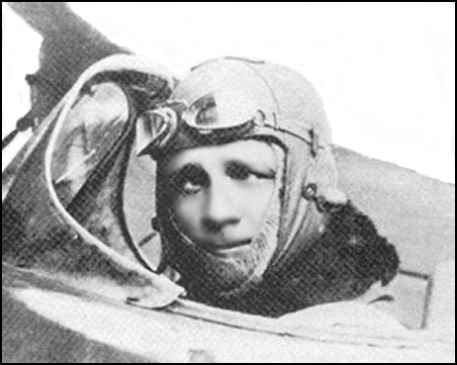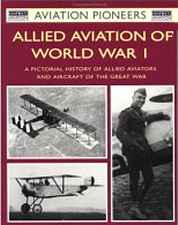
1885-1918 AKA Raoul Gervais Lufbery & Raoul Lufberry |
 |
 |
 |
 |
 |
||
| Biography | Notes & Comments | Resources | Family Tree |
|
No Longer Are They Permitted to Prowl About Freely. Tally of "Downs" Largely in Favor of Americans. However, Major Lufbery, Best of American Airmen, Is Shot Down in Flames, The Journal and Tribune, Knoxville, Tennessee: Tuesday, May 21, 1918, Transcribed by Bob Davis - 10-24-07 Fighting American airmen have locked wings with the enemy, and today the tally of machines brought down is overwhelmingly in their favor. In fact, they have had such good fortune that they are wondering whether it can keep up. They are not passing by a single chance to get at the enemy. The German airmen have started to fly in flocks, at a great height. Early this morning, for instance, five of them came over together at 6,000 metres, 2,000 above the ordinary fire of the “Archies.” The alarm was given promptly, but the Germans were keeping a sharp lookout and as soon as they saw five American pursuit planes climbing to meet them they turned and started home rapidly. Major Lufbery Killed Major John Raoul Lufbery, who has been regarded as the best aviator in the American service, was shot down in flames and killed this morning by a big German triplane, which he was attacking. Lufbery jumped from his flaming plane when 800 yards above the ground. He had seventeen victories to his credit. Major Lufbery was buried today with full military honors by French and American detachments. It was about ten o'clock this morning when a German triplane suddenly descended from the clouds, apparently because of engine trouble until it was only 1,500 metres over the city of Toul. The American fliers were on alert and some of them headed for the fighting line to await the enemy on his return. Lufbery and the pilot of another machine made after the German, who quickly ran away from the direction of the line, the two American machines following him. Eight miles away from the enemy's line, Lufbery was seen to attack from under the tail, but then he drew off as if his machine gun had jammed. Two minutes later he attacked again from the same position and almost immediately his machine burst into flames. The German machine which brought down Lufbery was armed with two machine guns, with an operator for each piece, apparently escaped. Lufbery's only wound, aside from those received when he crashed to earth, was a bullethole through the thumb. Apparently the same bullet punctured one of the gasoline tanks of his machine. The German machine was under heavy anti-aircraft fire several times, both before and after the air fight, and one explosion of a shell upset the enemy machine, but it managed to straighten out again. The Americans on the ground and hundreds of French men and women going to church along the country roads were horror stricken as they saw the airplane plunging earthward. Suddenly they saw the form of a man leap from the machine. Lufbery's body fell in a little flowering garden while his airplane still burning, dropped to the ground 400 yards away. By the time the first Americans had reached the spot the body of the famous flyer had been taken by the French to the city hall where it later was covered with the French tri-colors and great piles of roses and wild flowers. Daring and Popular Major Lufbery was known throughout the American army and in the French air service as "Luff," and was one of the most popular flyers on the front. He was a daring aviator, but noted for his coolness as well as his dash. Lufbery had just returned from visiting his God-mother at Brest. His sister lives there also. He came back from Brest before his leave had expired because he thought his help was needed, and had made three flights in his Nieuport pursuit machine before his fatal flight. He had been engaged in writing a record of his life since he became an aviator for some time previous to his death. Lufbery never missed an opportunity to knock down an enemy machine, frequently taking desperate chances to add to his victories. It was only yesterday that he remarked jokingly: "You fellows can't get all the easy pickings. I heard how you were knocking them down and decided to hurry back and get some myself. Let 'em all come, the more the merrier." The air service lost more than a crack aviator in Lufbery. It has lost a first-class instructor of young airmen just coming to the front, who looked to him for pointers on the little tricks of the trade which in a pinch may mean life or death to an aviator. Major Raoul Lufbery has been attached to the American aviation corps less than four months, but before that he had made a brilliant record as a member of the Lafayette escadrille, with the French army, and was generally accounted the leader of the American aces. Only recently he brought down his eighteenth machine, which so far as is known was the number standing to his credit when he was killed, and which is by far the largest credited to any American aviator, either with the American or French army. Lufbery's father was a native born American, but his mother was a French woman, and Lufbery himself was born in France 34 years ago. For the greater part of his life he was a traveler, taking up occupations in various parts of the world where his fancy led him. He served at one time for eighteen months with the American army in the Philippines and was successively occupied at times in Algiers, Egypt, Turkey, and various parts of Europe. Lufbery joined the French aviation service in 1916 and soon began to develop marked skill as an airman with the Lafayette escadrille. By November of that year he had shot down six machines and had been cited for bravery and early last year he won the cross of the Legion of Honor. Later he was presented with the gold medal of the Aero Club of France, the British military medal, the war medal of the Aero Club of America, and several times had been cited in French army orders, once as "an incomparable pilot." He had several narrow escapes from death. When the American air service began to assume active shape in France, Lufbery was commissioned as a major in the American army and late in January of the present year he was inducted into the United States service with that rank." |
|
please contact me. E-mail to Ralph Cooper |


|